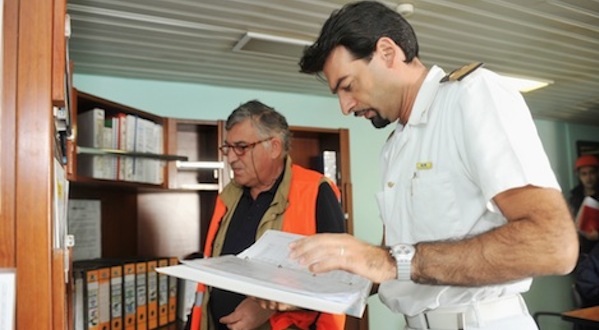A blessing in disguise
With Port State Control becoming more prevalent for yachts around the Mediterranean, Network Marine Consultants explains how the inspections should be welcomed, not viewed with trepidation.…
Historically, yachts have not been high up on Port State Control’s list of priorities, and they have been able to sail under Port State Control’s radar relatively unnoticed. In January 2011 a new regime called 'The Hybrid European Targeting and Inspection System' (THETIS) was brought into force under the Paris MoU and brought commercial yachts within Port State Control’s sights. Port State Control has since become more prevalent for yachts around the Mediterranean.
Under this regime, every day a number of ships will be selected for a Port State Control inspection throughout the region. To facilitate such selection, the central computer database, known as THETIS, is consulted by Port State Control Officer’s. This information system, hosted by the European Maritime Safety Agency, informs national PSC authorities which ships are due for an inspection. Data on a vessel’s particulars and reports of previous inspections carried out within the Paris MoU region are provided by the information system as well.
Pat Bullock of Network Marine Consultants is concerned that these inspections are often viewed with trepidation by captains and owners of commercial yachts. “However, these inspections are required to be carried out in a professional manner so as to create the least inconvenience to the vessel and its crew,” she advises.
While commercial yachts are required to be surveyed by their classification societies and flag states, over the years flag states have gradually started relying more on the classification societies to regulate and control the standards laid down by the International Maritime Organisation. “PSCIs take place in order to ensure that the flag states and classification societies do not fail to meet their required commitments,” explains Bullock.
“Having an inspection should, rather than being seen as an obstacle, be considered to be another arrow in a yacht owner’s quiver."
“Having an inspection should, rather than being seen as an obstacle, be considered to be another arrow in a yacht owner’s quiver – having received a favourable PSCI report, passengers or potential passengers can climb aboard content in the knowledge that all safety issues have been attended to; that the equipment has been properly maintained; and that the crew are competent and efficient to carry out their responsibilities.”
With Port State Control Inspections now a prerequisite to obtaining a charter licence in Spain, and the popular yachting destinations of France and Italy now implementing more thorough policies, the procedure will be becoming evermore familiar to commercial yachts. But they should be welcomed: once an inspection is completed successfully, the report will be valid for a year and the vessel won’t be re-inspected during that period, making it beneficial for yachts to have an inspection before the season gets underway.
Profile links
Click here to become part of The Superyacht Group community, and join us in our mission to make this industry accessible to all, and prosperous for the long-term. We are offering access to the superyacht industry’s most comprehensive and longstanding archive of business-critical information, as well as a comprehensive, real-time superyacht fleet database, for just £10 per month, because we are One Industry with One Mission. Sign up here.




